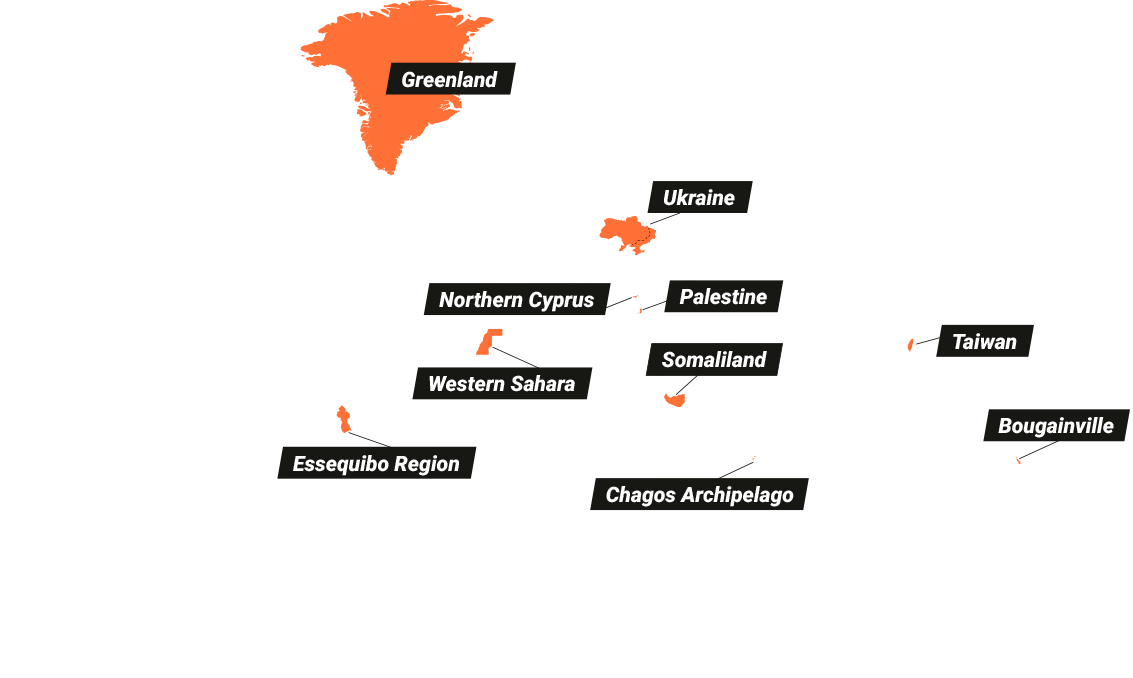
The State Succession Watchlist 2025 identifies 10 states or territories where state succession events are likely to develop in 2025. The Watchlist provides insights into processes that could lead to complex legal, political, financial, commercial, and diplomatic consequences, with both regional and global implications, potentially affecting international relations and arrangements. The 2025 Watchlist highlights key trends, mostly emerging from the 2024 State Succession Index.
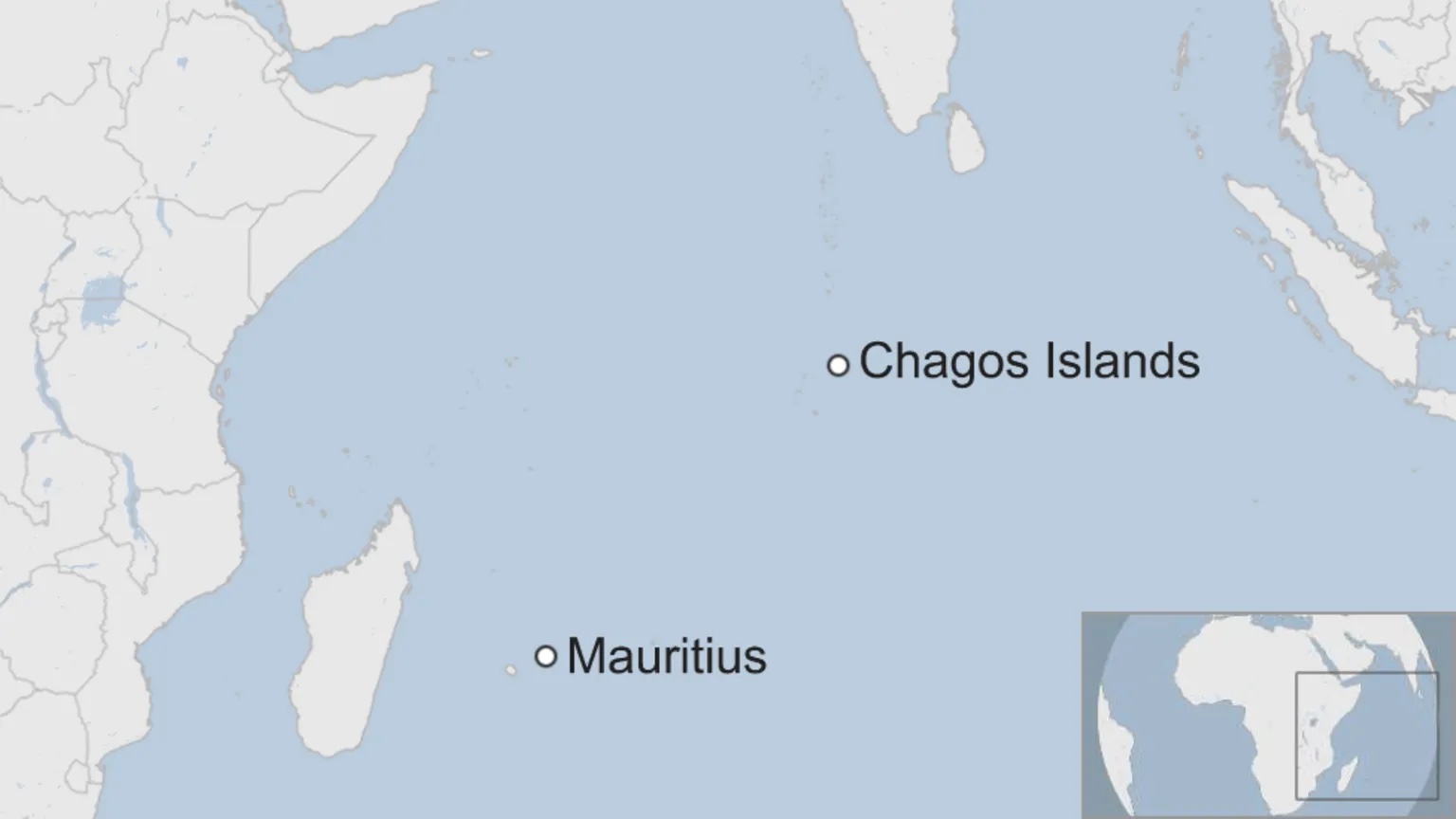
Chagos Archipelago

The transfer of sovereignty over the Chagos Archipelago from the United Kingdom to Mauritius, announced in October 2024, marks a significant development in international state succession. This agreement, which resolves a longstanding territorial dispute, includes provisions for the UK to maintain control of the strategically important Diego Garcia military base for 99 years. As Mauritius prepares to assume sovereignty, the situation raises critical legal, diplomatic, and strategic issues, with far-reaching implications for international treaties, regional security, and the rights of displaced populations.
The United Kingdom announced in October 2024, it would cede sovereignty of the archipelago in the Indian Ocean to Mauritius, resolving a longstanding territorial dispute. This agreement includes a provision for the UK to lease Diego Garcia, a strategically important military base, for an initial period of 99 years. Mauritius, which won independence from the UK in 1968, has maintained that the islands are its own, and the UN’s International Court of Justice has ruled, in an advisory opinion, that the UK’s administration of the territory is “unlawful.”
On 20 December 2024, the UK and Mauritius released a joint statement wherein they agreed that “[b]oth countries reiterated their commitment to finalising a treaty as quickly as possible, whose terms will agree to ensure the long-term, secure and effective operation of the existing base on Diego Garcia and that Mauritius is sovereign over the Archipelago.”
The plan to cede sovereignty of the archipelago, known officially as the British Indian Ocean Territory, was announced in October 2024 after a deal was reached with former Mauritian leader Pravind Jugnauth. But he was swept from power in a general election a month later, and Navin Ramgoolam, his replacement, has criticised the deal negotiated by his predecessor.
The agreement has also been mired in uncertainty after Donald Trump’s re-election as US president, given several US Republicans have argued it could deliver a potential security boost to China.
Mauritius says it was ready to sign a deal in January 2025 – but the UK asked to press the pause button to allow Trump to examine it first.
Plans for 2025:
As of February 2025, the UK and Mauritius are finalizing the formal treaty to implement the October 2024 agreement. The treaty aims to:
- Officially transfer sovereignty of the Chagos Archipelago to Mauritius.
- Secure a 99-year lease for the UK to continue operating the Diego Garcia military base.
- Implement measures to support the resettlement and welfare of the Chagossian people, who were displaced in the 1960s and 1970s. The UK government spokesperson said Chagossians would remain eligible for British citizenship and were free to make their home in the UK.
The treaty is expected to be signed in 2025, with both governments committed to resolving the outstanding issues.
Implications from a State Succession Perspective:
The transfer of sovereignty over the Chagos Archipelago from the UK to Mauritius raises several complex state succession issues in international law. Here are some of the key issues that would likely arise:
International Treaties, Legal and Financial Claims
The transfer could affect the legal status of the Chagos Archipelago within the context of international law. If the UK transfers sovereignty to Mauritius, it might trigger discussions regarding the legal implications of the earlier British actions of removing the indigenous population.
The Chagos Archipelago is located in a geopolitically sensitive region, and its transfer could affect Mauritius’ relations with neighbouring countries like Seychelles, and India, as well as regional organizations such as the Indian Ocean Rim Association and the African Union. Other countries might weigh in on the territorial issue, particularly if they have an interest in the military and strategic uses of the islands.
The UK has a long-standing agreement with the United States allowing the U.S. to maintain a military base on Diego Garcia, which is part of the Chagos Archipelago. If sovereignty over the archipelago is transferred to Mauritius, Mauritius may be required to either uphold or renegotiate such agreements. This may involve complex negotiations about military presence, rights of use, and compensation, especially if Mauritius, as the new sovereign power, wishes to revisit or terminate those agreements.
The United States has maintained a strategic military presence on Diego Garcia, which is important for global security, particularly in the Indian Ocean. The transfer of sovereignty to Mauritius could complicate the US’s strategic interests in the region. There may be negotiations over the continued presence of U.S. forces, possibly involving a lease agreement, a new treaty, or other diplomatic arrangements. The U.S. might seek to preserve its access to the base, which could lead to tensions with Mauritius if it desires to regain full control over the islands.
The UK’s obligations under various international treaties, such as those concerning the environment or maritime boundaries, could transfer to Mauritius or might need to be renegotiated. The issue of the archipelago’s maritime zones, including the Exclusive Economic Zone, could also be affected by the transfer of sovereignty.
The transfer of sovereignty often involves a complex determination of which state assumes financial liabilities and assets associated with the territory. The UK may have made investments or incurred obligations in the Chagos Archipelago (such as military infrastructure) that will now be transferred to Mauritius, along with potential responsibilities for environmental damage caused by military activities or other exploitation of the territory. Mauritius may need to address these issues through negotiations with the UK, the US, or other parties.
The Chagossians, having been displaced under British rule, may seek reparations or compensation for their forced exile. Mauritius may decide to advocate on their behalf, which could involve legal battles or international claims.
Revision of Existing Contracts and Impact on Foreign Investments
All existing contracts under UK sovereignty, particularly with foreign entities, could be subject to review, as Mauritius assumes legal responsibility for the territory. Up until 2025, the Chagos Archipelago has seen limited foreign investment outside of military and defence-related projects. The primary commercial activities were focused around military infrastructure, fishing (before the creation of the Marine Protection Area), and telecommunications. The establishment of the Marine Protection Area in 2010 significantly curtailed commercial fishing, and the UK’s control over the region prevented broader commercial development, including tourism and real estate investment.
With the full change in sovereignty to Mauritius and upon agreement between Mauritius, the UK and US, the region may open up to new forms of commercial activity, particularly in resource management, tourism, and environmental conservation, as Mauritius could seek to attract foreign investments and develop the region economically. However, military interests, especially from the United States and the United Kingdom, will continue to play a dominant role in shaping the economic landscape of the archipelago.
Conclusion
The transfer of the Chagos Archipelago from the UK to Mauritius is likely to give rise to a range of state succession issues, including challenges regarding territorial sovereignty, the rights of displaced populations, the continuation or renegotiation of international treaties (especially with the US), and financial, commercial, environmental, and diplomatic consequences of the change in sovereignty. While Mauritius is poised to take on responsibility for the archipelago, the complex legacy of colonialism, the Chagossians’ right to return, and the international strategic interests in the region will continue to shape this evolving issue in the coming years.
Sources: aljazeera, bbc, gov.uk, thetimes
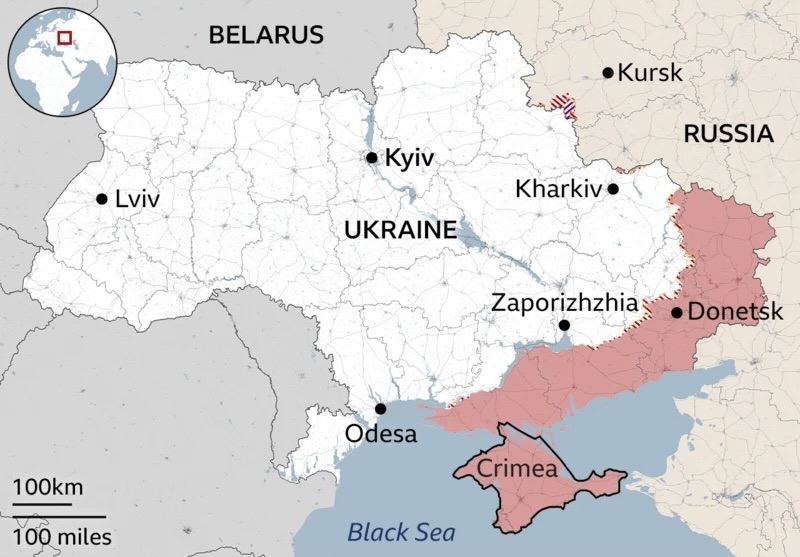
Ukraine

Ukraine remains a critical case for state succession monitoring in 2025 due to territorial disputes, ongoing conflict with Russia, and evolving geopolitical negotiations. Formal incorporation of Crimea, Donetsk, Luhansk into Russia’s legal and administrative system challenges Ukraine’s sovereignty and raises significant succession questions under international law. While Ukraine continues to assert its territorial integrity, Russia’s actions have created competing legal frameworks that complicate treaty obligations, governance, and economic stability.
The Trump-Putin negotiations in early 2025 have further altered Ukraine’s geopolitical landscape. With Ukraine partly excluded from these discussions and signals from the U.S. suggesting a possible compromise with Russia, the risk of territorial concessions has grown. The international response remains divided, with most Western states continuing to support Ukraine’s territorial integrity, while others explore the possibility of de facto adjustments to the new territorial realities.
State Succession Implications
Sovereignty Challenges and Treaty Succession
Ukraine faces continued threats to its territorial integrity, with Russia strengthening control over occupied regions and possibly pushing for international acceptance of territorial gains. Any imposed settlement without Ukraine’s consent would create long-term disputes over the legitimacy of territorial control and governance structures. Any formal loss of territory or shift in governance could require a constitutional overhaul, particularly regarding citizenship laws, governance structures, and regional autonomy.
If Ukraine experiences a territorial reconfiguration, legal debates will arise over whether successor entities would inherit Ukraine’s international treaty obligations. Ukraine’s EU integration process could be complicated by territorial instability and governance shifts. If significant territorial losses occur, Ukraine’s legal status in global institutions, such as the UN and OSCE, may need to be reassessed.
Humanitarian and Citizenship Challenges
Millions of Ukrainian refugees remain abroad, and any state succession scenario could impact their legal status. If Ukraine were to lose additional territories, populations in contested areas may be forced to choose between Ukrainian and Russian citizenship, with consequences for property rights, movement, and legal protections. Ukraine’s large internally displaced population and refugees in Europe face legal uncertainties regarding their nationality and right to return if state succession occurs.
Financial and Economic Consequences
A fragmented Ukraine would lead to disputes over sovereign debt, requiring international lenders, including the IMF and World Bank, to determine which entity remains responsible. Foreign businesses operating in Ukraine may face legal uncertainties, particularly regarding property rights, taxation, and contract enforcement in contested regions. If Russia fully consolidates its annexations, economic sanctions and trade restrictions could further isolate these regions, limiting their integration into global markets.
Conclusion
While a complete dissolution of Ukraine is unlikely, the territorial fragmentation, shifting geopolitical alignments, and ongoing military conflict make it a critical state succession case to monitor in 2025. Ukraine’s inclusion in the State Succession Watchlist is justified by the legal, diplomatic, economic, and humanitarian consequences of its unresolved territorial status. Any future settlement involving Ukraine’s borders, governance, and treaty obligations will have far-reaching implications for international law, global stability, and the precedent it sets for state succession disputes.
Sources: bbc
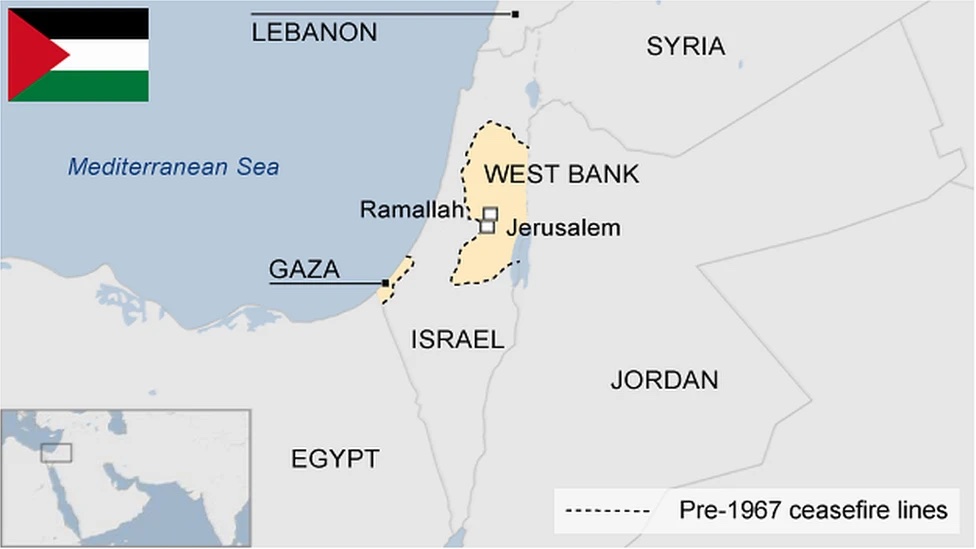
Palestine

In 2024, Palestine gained recognition from nine more countries, bringing the total to 146 United Nations member states. This progress strengthens its statehood claim but also raises key state succession issues, particularly regarding treaty obligations, economic relations, and territorial disputes with Israel. Geopolitical tensions, like the controversial U.S. proposal to “take over” Gaza, add complexity to Palestine’s path toward full sovereignty. As the situation evolves in 2025, these challenges will have significant implications for international law, diplomacy, and regional stability.
In 2024, Palestine made significant progress toward broader international recognition, with nine additional countries recognizing it as a sovereign state. This brought the total number of UN member states recognizing Palestine to 146 out of 193, a major step in its ongoing pursuit of full statehood. The recognition strengthens Palestine’s legal standing in the international system, allowing it to assert greater sovereignty over its claimed territories—the West Bank, Gaza, and East Jerusalem. From a state succession perspective, these developments are particularly important, as they affect Palestine’s capacity to enter into treaties, join international organisations, and assume rights and obligations under international law.
However, this progress does not come without challenges. The territorial dispute with Israel remains unresolved, leading to jurisdictional ambiguities regarding international agreements, financial obligations, and diplomatic engagement. The uncertainty surrounding Gaza, in particular, became even more pronounced in early 2025, when U.S. President Donald Trump suggested that the United States should “take over” and “own” Gaza to redevelop it into a resort destination. This controversial proposal sparked outrage in the Arab world, underscoring the geopolitical sensitivities of Palestine’s statehood claims and their direct impact on regional stability.
Given these recent developments, Palestine’s situation raises key state succession questions that demand the attention in 2025. Palestine’s statehood efforts are not just a regional matter—they carry profound implications for international law, diplomacy, and conflict resolution.
State Succession Dimensions of Palestine’s Recognition
The formal recognition of Palestine by a majority of UN member states does not automatically translate into full sovereignty under international law. However, it strengthens Palestine’s claim to succession rights, impacting its participation in multilateral treaties, diplomatic relations, and economic affairs. The following key areas illustrate the state succession issues that arise from Palestine’s growing recognition:
Treaty Obligations and Jurisdictional issues
With increasing recognition, Palestine has been able to sign and ratify more multilateral international treaties like the UN Convention on the Law of the Sea. If Palestine were to achieve full UN membership, it could assume greater treaty-making capacity, raising questions about how pre-existing agreements between Israel and Palestine—such as the Oslo Accords—would be interpreted or renegotiated.
Palestine’s accession to organizations like the International Criminal Court has already impacted legal proceedings related to Israeli settlements and military actions. The more Palestine integrates into the international legal system, the more likely it is to challenge Israel’s policies under international law.
However, challenges persist due to the ongoing territorial disputes and the complex political landscape. These issues contribute to jurisdictional ambiguities, particularly concerning the implementation of treaty obligations in contested areas such as the West Bank, Gaza Strip, and East Jerusalem.
Economic and Commercial Consequences
The economic implications of Palestine’s recognition are equally profound. As Palestine secures greater sovereignty, it could gain enhanced access to international financial institutions, development funding, and foreign direct investment.
Increased recognition also impacts foreign direct investment in Palestinian territories. Greater sovereignty could provide legal stability, encouraging businesses to invest. However, it also raises concerns about jurisdictional disputes in commercial contracts, particularly for foreign companies operating in Israel and Palestine. Questions of debt liability and investor-state disputes remain critical.
The legal ambiguity surrounding property rights and commercial contracts, particularly those involving Israeli entities, could also deter investment and complicate economic stability. Clarity on these succession issues will be crucial to ensuring a smooth economic transition.
The Gaza Question and Geopolitical Tensions
The status of Gaza remains one of the most contentious aspects of Palestine’s statehood claims. The enclave, controlled by Hamas, has been a flashpoint of conflict, with humanitarian crises and military escalations shaping its political future.
The recent Trump proposal to “own” Gaza and transform it into a U.S.-controlled resort drew intense criticism, exposing the fragility of Gaza’s status in the broader state succession debate. While widely dismissed the statement reflects the geopolitical complexity surrounding Palestine’s recognition. If Palestine were to gain full sovereignty, how would it incorporate Gaza? Would Hamas remain in control, or would Palestine as a state assert authority over the enclave? These questions underscore the territorial and governance issues at the heart of Palestine’s statehood claims.
Conclusion
As Palestine’s recognition grows, state succession issues become increasingly relevant. In 2025, the international community must be prepared for a shifting legal landscape, where Palestine’s claims to full sovereignty will test the adaptability of international law and diplomacy. The legal and political challenges surrounding Palestine’s sovereignty—including treaty obligations, economic issues, territorial disputes, and governance issues—must be addressed with careful international engagement. With major geopolitical actors shaping the narrative, the State Succession Watchlist 2025 highlights Palestine as a critical case requiring ongoing legal, diplomatic, and economic consideration.
Sources: bbc, theguardian
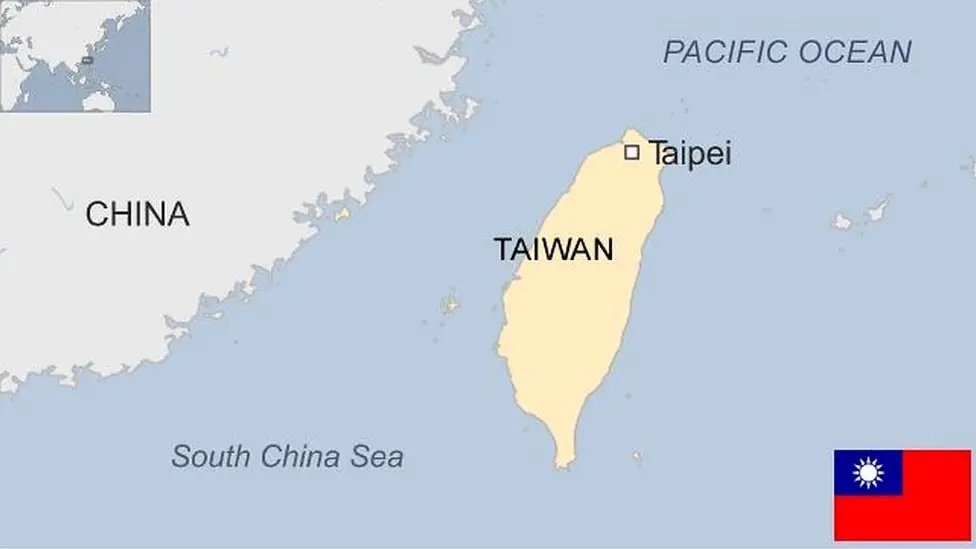
Taiwan

Taiwan’s complex and evolving international status makes it a key case for monitoring in 2025. As a self-governing entity with a distinct political system, economy, and governance structure, Taiwan continues to function as a de facto independent state, despite China’s persistent claims of sovereignty. The diplomatic, legal, and economic challenges Taiwan faces in securing formal state recognition and maintaining its international presence have intensified over the past year.
The loss of Nauru’s recognition in January 2024 further reduced the number of states that officially recognize Taiwan to 12, highlighting its shrinking formal diplomatic network. However, Taiwan has continued to expand unofficial ties with key global actors, particularly in Europe, North America, and the Indo-Pacific region. While no major state granted formal recognition, countries like Lithuania, Japan, and the United States deepened their engagement with Taiwan, triggering diplomatic and economic retaliation from China.
Key Risks & Consequences
Recognition Challenges and International Legitimacy
Taiwan’s ambiguous international status makes it difficult to secure membership in key international organizations like the United Nations, World Health Organization, and International Civil Aviation Organization. While Western and Indo-Pacific nations have strengthened unofficial ties with Taiwan, they hesitate to offer formal recognition due to fears of Chinese retaliation. In 2025, China will continue diplomatic pressure on other states to avoid engaging with Taiwan which remains a significant barrier to Taiwan’s broader international integration.
Legal Status and State Succession Implications
Taiwan is widely recognized as having a distinct political and economic system, yet its lack of UN membership and limited diplomatic recognition create legal ambiguities in international law. China insists that Taiwan is an inalienable part of its territory, making any recognition of Taiwan as a state a direct challenge to China’s sovereignty claims. Taiwan has been excluded from most treaty-based dispute resolution mechanisms, making legal challenges in areas like territorial waters, aviation rights, and trade agreements more complex. Taiwan continues to participate in international agreements under alternative names like “Chinese Taipei”, allowing limited engagement while avoiding full diplomatic recognition.
Economic, Financial, and Commercial Implications
Taiwan remains a global leader in semiconductor manufacturing, making it a key player in global supply chains. Despite diplomatic pressures, Taiwan has successfully negotiated economic cooperation frameworks with the European Union and Southeast Asian nations. Foreign investment remains strong, particularly in technology, finance, and manufacturing sectors, due to Taiwan’s stable economy and skilled workforce. However, uncertainty over Taiwan’s future status has prompted some businesses to assess political risks in long-term investments.
Potential State Succession Scenarios
Taiwan remains functionally independent but without formal recognition, while China increases pressure through diplomatic and economic measures. The U.S. and allies will continue arms sales and security cooperation, supporting Taiwan’s military might. Taiwan’s economic and technological dominance in semiconductors ensures continued global engagement despite diplomatic isolation.
If a major power formally recognizes Taiwan, China may view this as a violation of its sovereignty and respond with military or economic coercion. The risk of escalation in the Taiwan Strait increases, potentially leading to regional instability and global economic disruptions.
China could continue to pressure Taiwan’s remaining diplomatic allies to sever relations, further reducing Taiwan’s international legitimacy. Beijing may intensify economic coercion, restricting Taiwan’s trade and financial access while isolating it from international markets.
Conclusion
Taiwan’s state succession concerns remain among the most complex in the world, given its functional independence, lack of UN membership, and increasing tensions with China. While Taiwan is unlikely to gain recognition in 2025, its growing economic and strategic significance ensures that it remains an influential global actor. However, as China escalates diplomatic, economic, and military pressure, Taiwan’s international engagement and future status remain uncertain.
Source: bbc
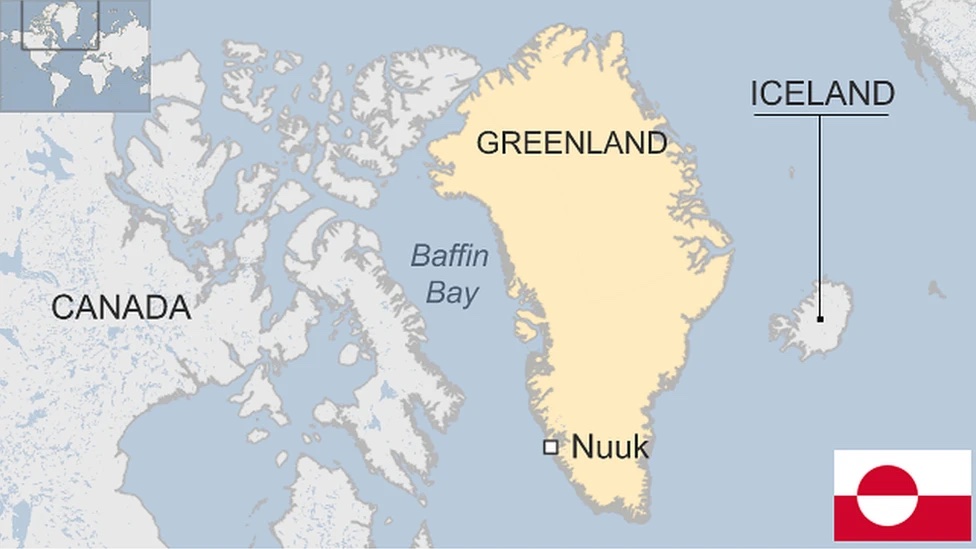
Greenland

Greenland’s potential move towards independence has emerged as a significant issue in state succession discussions for 2025. The territory, currently an autonomous part of the Kingdom of Denmark, has long sought greater self-governance, but recent geopolitical developments—particularly U.S. interest in acquiring Greenland—have intensified debates over its future political and legal status. This evolving situation raises critical questions regarding sovereignty, treaty obligations, and economic stability, making Greenland’s path forward a key area for international scrutiny.
Greenland’s Potential Shift Toward Independence and U.S. Involvement:
Greenland’s aspirations for greater autonomy have been fueled by a variety of factors, including increased discussions over its potential future relationship with the United States. In early 2025, U.S. President Donald Trump’s statements reignited interest in the idea of acquiring Greenland, a proposal he first floated in 2019. The possibility of U.S. acquisition or closer ties would bring substantial changes to Greenland’s legal status, governance structure, and international standing.
Legal Implications of State Succession
If Greenland were to separate from Denmark, key legal questions would arise concerning its international legal status. Greenland would need to determine whether it automatically succeeds to Denmark’s international treaties or whether it must renegotiate agreements as a newly independent state. Under customary international law, treaty succession depends on factors such as Greenland’s prior participation in treaties under Denmark’s umbrella and the nature of the agreements in question. Greenland could choose to remain bound by certain multilateral treaties—such as environmental and human rights agreements—but may need to negotiate new bilateral agreements with Denmark, the European Union, and other states.
Another critical issue is UN and NATO membership. If Greenland were to achieve independence, it would need to apply for recognition as a sovereign state and seek membership in international organizations. Given Greenland’s strategic location in the Arctic, its accession to NATO could be a major geopolitical concern, particularly for Arctic governance and military alliances.
Citizenship and Nationality Considerations
A Greenlandic declaration of independence would also raise questions about citizenship. Currently, Greenlanders hold Danish passports, granting them EU citizenship rights. If Greenland becomes independent, it must decide whether to establish its own nationality framework or maintain dual nationality arrangements with Denmark. Greenlandic citizens living in Denmark or other EU states may face legal uncertainties regarding residency, employment rights, and travel restrictions. Greenland’s government would need to establish a citizenship policy addressing these concerns while ensuring a smooth transition for its people.
Potential U.S. Incorporation and Its Legal Consequences
If Greenland were to join the United States—whether as an incorporated territory, an associated state, or another political arrangement—its legal status would undergo significant transformation. Under U.S. constitutional law, Congress would need to define Greenland’s governance structure, citizenship rights, and economic policies. Greenland might be granted territorial status similar to Puerto Rico or Guam, or it could negotiate an arrangement allowing for substantial autonomy while benefiting from U.S. economic and military support.
From an international law perspective, Greenland’s transition to U.S. control would raise concerns about sovereignty and self-determination. Denmark and the EU have opposed the idea of a U.S. acquisition, arguing that such a move could violate international norms governing territorial transfers. Greenlanders themselves would need to approve any political transition through a democratic process, ensuring compliance with the principle of self-determination under international law.
Effects on Commercial Arrangements and Economic Stability
State succession can have profound effects on commercial contracts, trade agreements, and investment frameworks. Greenland currently benefits from Danish subsidies amounting to approximately $600 million annually, covering a significant portion of its GDP. If Greenland becomes independent, it must establish alternative revenue sources, such as mineral extraction, fisheries, and tourism.
Existing commercial agreements between Greenlandic businesses and European or Danish companies may be subject to renegotiation. Greenland’s departure from the EU’s trade framework could disrupt access to European markets, requiring new trade deals. Foreign investors might also reconsider their commitments, given uncertainties about taxation, regulatory changes, and political stability. Greenland’s legal system would need to address contract continuity and investment protections to prevent economic instability.
If Greenland were to integrate into the U.S., its trade and regulatory environment would shift toward North American market structures. U.S. corporations would likely expand their presence in Greenland’s resource industries, potentially increasing competition for local businesses. Greenland’s existing commercial arrangements with Denmark and the EU would be re-evaluated in light of U.S. trade policies, affecting industries ranging from fisheries to energy production.
Conclusion
Greenland remains a high-priority case for state succession monitoring in 2025. The possibility of full independence, increased U.S. involvement, and shifting Arctic alliances makes Greenland’s legal and political future a key concern for international law. Treaty succession, citizenship rights, economic stability, and commercial arrangements all require careful management to ensure a smooth transition. Whether Greenland moves toward independence, strengthens its autonomy within Denmark, or explores closer ties with the United States, its case will set important legal precedents for state succession in the modern era.
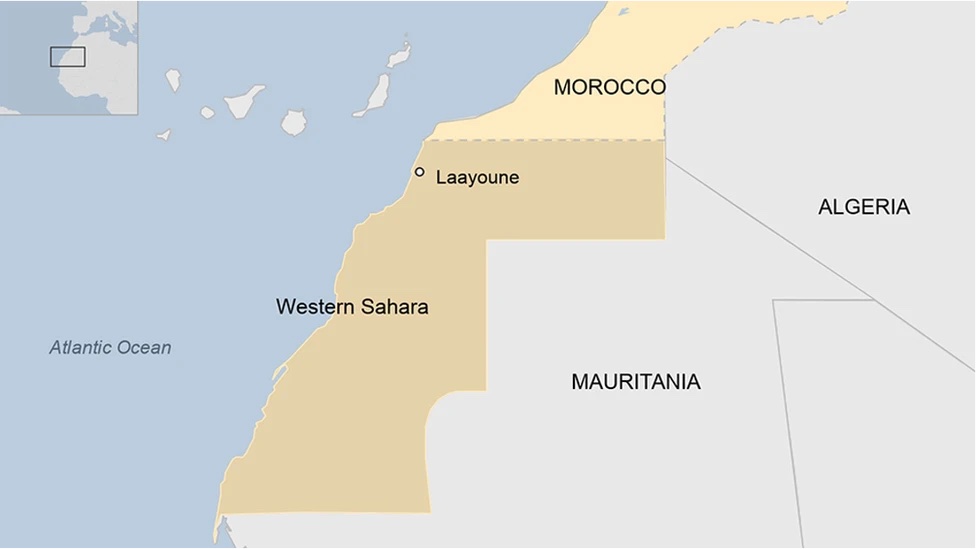
Western Sahara

The Sahrawi Arab Democratic Republic (SADR), proclaimed by the Polisario Front in 1976, faces a critical challenge as Morocco strengthens its control over Western Sahara. In 2024, France’s recognition of Moroccan sovereignty over the territory, following the lead of the U.S. and other nations, has significantly diminished international support for Sahrawi independence. This shift raises important questions about the future of the SADR and the broader implications for state succession and international law in territorial disputes, particularly as Morocco solidifies its geopolitical and economic influence in the region.
France’s recognition, aligning with the United States, Spain, and several African and Arab states, represents a significant shift in Western Sahara’s geopolitical landscape. By endorsing Morocco’s 2007 autonomy plan, French President Emmanuel Macron reinforced Morocco’s position while signaling potential shifts in European Union policy. Algeria, the SADR’s primary supporter, condemned France’s decision, warning of increased instability in the Maghreb. As European businesses expand their presence in the region, other EU countries may follow France’s lead, further weakening the SADR’s standing.
With fewer than 40 UN member states still recognizing the SADR, mostly in Africa and Latin America, the risk of further derecognition looms large. In recent years, Morocco’s diplomatic efforts have already led to multiple states withdrawing recognition, and France’s move could accelerate this trend, particularly among African nations with economic ties to Morocco. A weakening of support within the African Union could even threaten the SADR’s AU membership, fundamentally altering the regional balance of power.
Legal Implications for International Law and State Succession
The legal implications of this shift are profound. The UN continues to classify Western Sahara as a non-self-governing territory pending a referendum, but growing recognition of Moroccan sovereignty could undermine this position. If more states align with Morocco, the SADR’s claim to statehood may erode, setting a precedent for resolving contested sovereignty disputes through diplomatic recognition rather than referendums or self-determination. This shift could also diminish the UN’s role in the dispute, strengthening Morocco’s de facto control over the region.
Economic and Commercial Consequences
Beyond the diplomatic and legal dimensions, economic factors are playing an increasingly decisive role. France’s recognition has opened the door to expanded commercial activities in Western Sahara, particularly in phosphate mining, fisheries, and energy projects. In 2024, French companies signed at least 22 investment deals in the region, deepening Morocco’s economic integration of Western Sahara. The partnership between French decarbonization firm MGH Energy and Morocco’s Petrom to develop fuel production facilities near Dakhla signals growing foreign interest in the region’s resources. Meanwhile, Morocco has intensified infrastructure projects and encouraged Moroccan citizens to relocate to Western Sahara, further solidifying its control.
If the European Union follows France’s lead, EU-Morocco trade agreements could formally recognize Western Sahara’s goods as Moroccan exports, complicating the SADR’s economic claims. This economic shift would make it increasingly difficult for the SADR to assert sovereignty, as Morocco’s financial and logistical grip on the territory tightens.
Possible Future Scenarios
Looking ahead, several possible outcomes could shape the future of Western Sahara. The most likely scenario is the continued recognition of Moroccan sovereignty, with more countries, particularly in Africa, the Middle East, and Europe, withdrawing their support for the SADR. As Morocco strengthens its diplomatic and economic position, the African Union and the UN may struggle to maintain a neutral stance, potentially leading to a final settlement that favours Moroccan control.
Alternatively, Algeria and the Polisario Front could escalate their resistance, leading to renewed instability in the Maghreb. Increased military and diplomatic support from Algeria could prolong the conflict, keeping the issue on the international agenda and preventing Morocco from achieving full international recognition of its claims. However, without stronger international backing, the SADR’s prospects for maintaining its statehood claim will remain uncertain.
A third possibility is a negotiated settlement, in which Morocco, under international pressure, offers greater autonomy to Western Sahara while maintaining sovereignty. Such a compromise, potentially mediated by the UN or the African Union, could grant Sahrawis a degree of self-rule, reducing the SADR’s status from a recognized state to a regional political entity within Morocco’s framework.
Conclusion
France’s recognition of Moroccan sovereignty in 2024 has reshaped the international approach to Western Sahara, making the likelihood of further SADR derecognition in 2025 increasingly probable. The legal, diplomatic, and economic consequences of this shift suggest that Morocco’s control over the territory may soon be cemented, redefining Western Sahara’s status under international law. As more countries align with Morocco, 2025 could mark a turning point in the long-standing dispute over the region’s sovereignty.
Sources: bbc
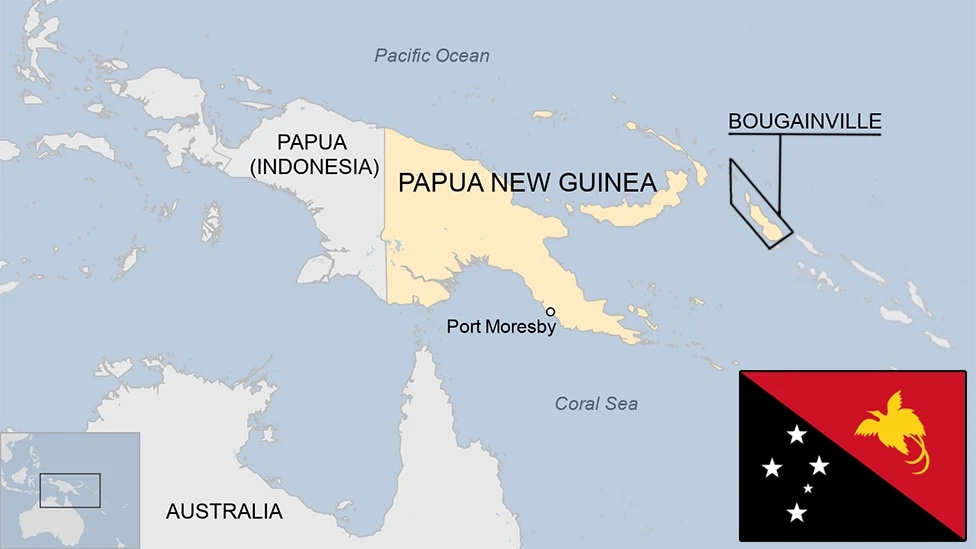
Bougainville

Bougainville remains on course for full independence from Papua New Guinea (PNG), following the overwhelming 97.7% vote in favour of secession during the 2019 referendum. In 2024, significant progress was made, including the drafting of a proposed independence constitution and ongoing negotiations with PNG regarding the referendum’s ratification. However, uncertainty persists over whether the PNG Parliament will endorse Bougainville’s independence, raising key legal, political, and economic challenges.
In June 2024, the Bougainville Constitutional Planning Commission released the first draft of the autochthonous constitution for an independent Bougainville, marking a significant step in the region’s path towards political independence.
Article 169 paragraphs 1-4 of the draft Constitution dedicated to Succession rules regulates issues on property, assets without clarifying public or private; rights, liabilities and obligations of the ABG arising out of contracts or otherwise; and office and established state body. At the same time, the draft Constitution had no provisions on succession to international treaties, public debt, archives to name. If there is no constitutional guarantees then there are two more means of effectuating succession as unilateral declaration or by concluding devolution agreement with PNG. As international practice showed these issues are important part for building a new nation and it is better to discuss and determine them in advance.
Expected Developments in 2025
PNG Parliament’s Debate on Bougainville’s Independence
A critical milestone in 2025 will be the presentation of the 2019 referendum results in PNG’s Parliament. While the Era Kone Covenant provides a structured roadmap for transition, PNG lawmakers remain divided on endorsing Bougainville’s independence. Concerns about setting a precedent for other secessionist movements within PNG could delay the ratification process. Resistance from influential political factions and concerns over national unity may further complicate the debate.
Finalisation and Adoption of Bougainville’s Constitution
Bougainville will continue refining its constitution throughout 2025, laying the foundation for a stable and functional state. Key areas under discussion include:
- Governance Structure: Defining executive, legislative, and judicial powers to ensure political stability.
- Judicial Independence and Human Rights: Establishing a legal framework that aligns with international human rights standards.
- Resource Management and Economic Sustainability: Creating policies for managing Bougainville’s natural resources, particularly the Panguna Mine, to finance independence.
- Defence and Security Policies: Addressing security concerns, including defense agreements and law enforcement structures.
To ensure compliance with international legal standards, Bougainville may seek guidance from the United Nations and constitutional law experts. It would also be useful to clarify of issues of State Succession as mentioned.
Diplomatic Outreach and International Recognition
As Bougainville moves toward statehood, diplomatic engagement with key regional and global actors will be vital. In 2025, Bougainvillean leaders are expected to intensify discussions with Australia, New Zealand, and Pacific Island nations, seeking formal recognition. Securing recognition from key actors as well as the United Nations will be crucial in legitimizing Bougainville’s statehood ambitions.
Legal and Political Considerations of State Succession
Bougainville’s transition to independence requires clear legal succession mechanisms under both PNG’s constitutional framework and international law. PNG’s formal recognition of Bougainville as a sovereign state is a prerequisite for legitimacy under international law, but parliamentary approval remains uncertain. Bougainville’s constitution must address key aspects of state succession, including continuity of governance, citizenship laws, and the assumption of international treaty obligations.
PNG is a party to multiple international treaties. Bougainville will need to determine which agreements it wishes to succeed to or renegotiate as an independent state. Key areas of concern include maritime boundaries, defence agreements, and environmental commitments. Legal frameworks for dual nationality or transitional citizenship arrangements may be required for Bougainvilleans who retain ties to PNG.
Resource Management and Economic Planning
Resource governance will be a major focus in 2025. The Panguna Mine, a historically significant copper mine, remains a key economic asset that could finance Bougainville’s independence. Negotiations over mining agreements and sustainable resource management frameworks will be essential for economic stability.
Conclusion
Bougainville’s path to statehood is progressing, but 2025 will be a pivotal year in determining its future. The parliamentary debate in PNG, constitutional finalization, resource governance, and diplomatic efforts will shape the region’s trajectory toward full independence. While the Era Kone Covenant provides a structured framework for transition, significant legal, diplomatic, and economic hurdles remain. The successful resolution of these challenges will determine whether Bougainville can achieve full sovereignty by 2027. Continued mediation, international engagement, and careful legal structuring will be crucial in shaping Bougainville’s emergence as an independent nation.
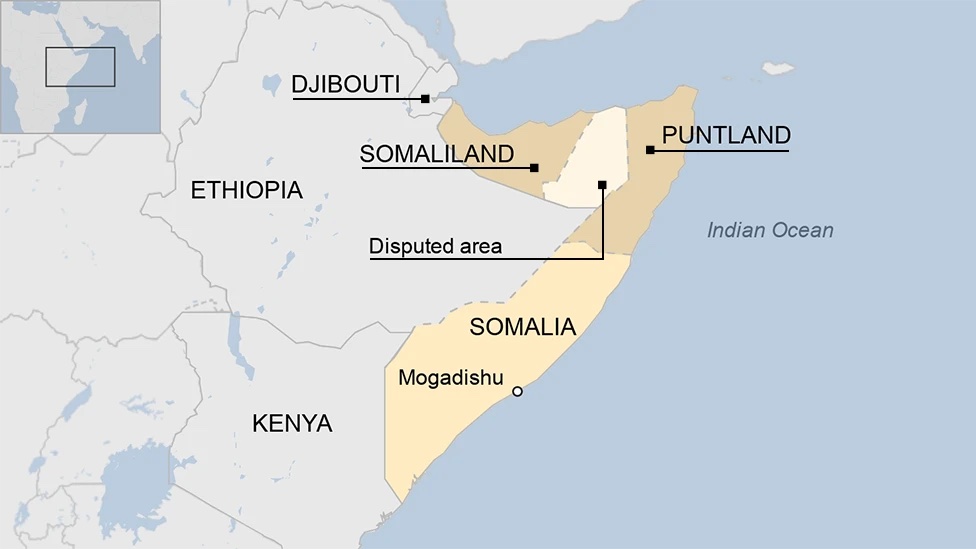
Somaliland

In 2024, Somaliland gained international attention through a Memorandum of Understanding (MoU) with Ethiopia, in which Ethiopia agreed to recognize Somaliland in exchange for access to a 19-kilometer stretch of coastline near Berbera. While this deal initially suggested a diplomatic breakthrough, opposition from Somalia and regional stakeholders complicated its implementation. Diplomatic talks, including those brokered by Turkiye, led Ethiopia to reaffirm Somalia’s sovereignty, leaving the MoU’s future uncertain. Despite this, Somaliland continues to assert its de facto independence and draw interest from international actors, including the United Kingdom and the United States.
Monitoring Somaliland in 2025 is crucial for understanding its potential path toward statehood, driven by key factors such as recognition, legal status, economic growth, and regional dynamics:
Recognition and Diplomatic Engagement: Somaliland’s pursuit of international recognition is central to its statehood aspirations. The MoU with Ethiopia, while initially promising, underscores the challenges of achieving formal recognition amid Somalia’s opposition and regional complexities. Tracking diplomatic shifts in 2025 will be vital for understanding how international actors, especially the UK and the US, may influence Somaliland’s status and its chances for formal recognition.
Legal and Territorial Implications: Somaliland’s 1991 declaration of independence has been backed by a stable government and democratic institutions. However, it lacks formal recognition, complicating its efforts to establish legitimacy. Territorial disputes with Somalia, particularly regarding issues like the Ethiopian port deal, will remain a core challenge in its state succession efforts. Monitoring legal developments in 2025 will be key to understanding Somaliland’s evolving position in the international legal system.
Geopolitical and Economic Position: Situated along the Gulf of Aden, Somaliland’s strategic location, combined with its growing economy, including significant investments like the $442 million DP World project at Berbera Port, strengthens its sovereignty claims. However, its unrecognized status poses challenges in accessing global financial systems and establishing clear economic agreements. Observing Somaliland’s economic and security developments will offer insight into how its de facto statehood is evolving.
Regional Dynamics: The changing diplomatic relationships between Somalia, Ethiopia, and Somaliland are shaping the broader Horn of Africa landscape. In 2025, Somaliland’s interactions with key international actors will provide clues about the implications for other regions with similar secessionist movements. The success or failure of Somaliland’s diplomatic efforts could set precedents for other aspiring states seeking autonomy.
Implications for 2025
Recognition and Continuity: The MoU with Ethiopia marked the first time a UN member state committed to recognizing Somaliland’s independence. Despite Ethiopia’s reversal, the agreement reinforced Somaliland’s claim to sovereignty. Diplomatic engagements with the UK and the US indicate a strategy to gain recognition, though official recognition remains elusive. This fragmented recognition presents a unique case in state succession.
Territorial and Legal Implications: The Ethiopia-Somaliland agreement highlights the tension between territorial integrity and self-determination. Somalia’s view of Somaliland as part of its sovereign territory complicates recognition efforts. Somaliland’s established governance since 1991 further solidifies its claim, but without recognition, it faces significant challenges in accessing international treaties and financial institutions. Bilateral agreements, such as the Ethiopian port deal, raise questions about the legitimacy of actions taken by unrecognized entities.
Economic and Strategic Considerations: The Berbera corridor deal underscores the role of infrastructure and trade agreements in asserting sovereignty. Somaliland’s economic stability, bolstered by foreign investments, positions it as an attractive investment destination. However, its lack of formal recognition creates uncertainties for investors, particularly regarding access to international arbitration and financial systems.
Conclusion
Somaliland remains a crucial case in state succession, balancing diplomatic efforts, economic development, and legal challenges to assert its sovereignty. While its independence remains unrecognized, its internal stability and strategic partnerships suggest it may emerge as a potential state. How international actors respond to Somaliland’s evolving situation in 2025 will significantly impact its path toward statehood.
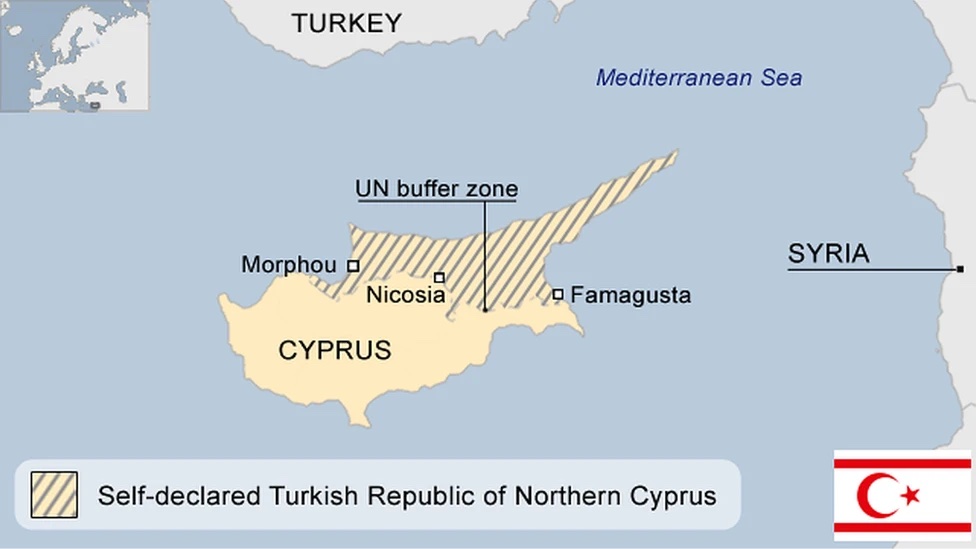
Northern Cyprus

The Turkish Republic of Northern Cyprus (TRNC) continues to exist in a state of partial recognition, with Turkiye as its sole diplomatic supporter. In 2024, the TRNC intensified diplomatic efforts to gain broader international recognition, focusing on strengthening ties with Turkic nations and advocating for a two-state solution to the Cyprus issue. Notably, Azerbaijan has shown increasing engagement with the TRNC, leading to speculation about potential formal recognition in 2025. Despite these efforts, its status remains highly contested, with the European Union and the United Nations firmly rejecting its claims to statehood and reaffirming the Republic of Cyprus as the island’s only legitimate government.
Political and Diplomatic Developments
In 2024, high-level interactions between TRNC and Azerbaijani officials increased. TRNC President Ersin Tatar expressed optimism about Azerbaijan recognizing the TRNC, stating, “Our President, our Prime Minister, and delegations have been traveling to Azerbaijan… I hope that soon, perhaps in 2025, recognition will be on the agenda.”
The Organization of Turkic States (OTS) granted observer status to the TRNC during its 2024 summit in Bishkek, Kyrgyzstan. This move, while symbolic, indicates growing regional support and has been perceived as a step toward legitimizing the TRNC on the international stage.
Turkiye has consistently advocated for a two-state solution in Cyprus. In early 2025, Turkish Foreign Minister Hakan Fidan reiterated this stance, emphasizing the need to acknowledge “existing realities” and dismissing other solution efforts as “a waste of time.”
Legal and International Implications
Potential recognition by Azerbaijan could alter the legal landscape for the TRNC, impacting treaty successions and international agreements. Such recognition may challenge existing frameworks that view the Republic of Cyprus as the sole sovereign authority on the island.
A shift toward recognizing the TRNC could complicate ongoing UN-mediated efforts aimed at reunification under a bizonal, bicommunal federation. It may also influence the positions of other nations and international organizations regarding the Cyprus dispute.
Economic and Commercial Implications
Formal recognition by Azerbaijan could pave the way for direct trade agreements, reducing the TRNC’s economic isolation. This development might encourage other nations to engage in economic activities with the TRNC, further integrating it into regional markets.
Enhanced diplomatic ties may lead to increased investments in sectors such as tourism, education, and infrastructure, bolstering the TRNC’s economic growth and stability.
Conclusion
The potential recognition of the TRNC by Azerbaijan in 2025 represents a significant development in the context of state succession. Such a move could redefine diplomatic relations in the Eastern Mediterranean and influence the broader international community’s approach to the Cyprus issue. Given these potential shifts, the TRNC warrants close monitoring and inclusion in the State Succession Watchlist 2025.
Sources: Greekcitytimes, Cyprus-mail, Kibrispostasi
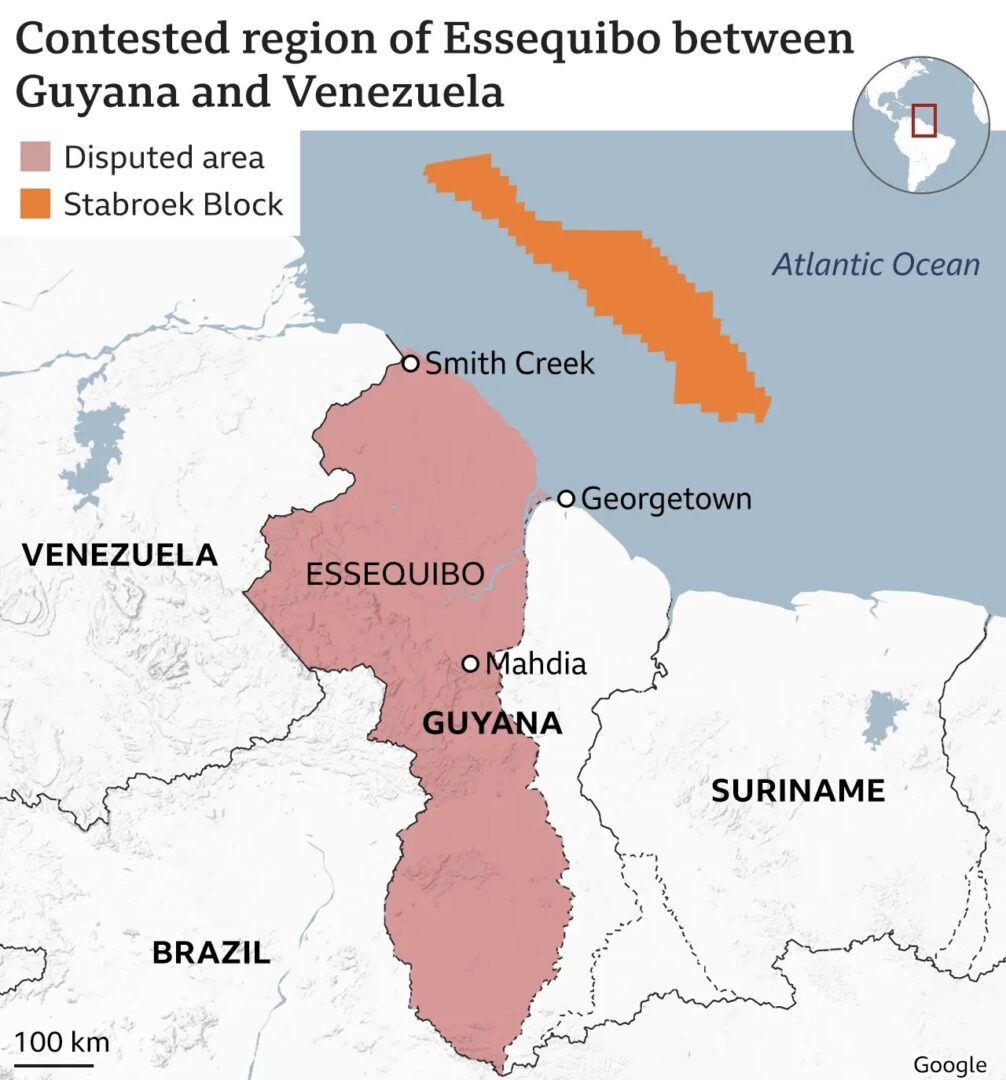
Essequibo Region

The dispute over the Essequibo region—spanning approximately 159,500 square kilometers west of the Essequibo River—presents a complex case of state succession, emerging from colonial territorial arrangements. The region, rich in natural resources such as substantial oil reserves, is currently administered by Guyana, but claimed by Venezuela. The roots of the dispute trace back to the 19th century, with the 1899 Paris Arbitral Award establishing the boundaries between British Guiana (now Guyana) and Venezuela. Venezuela has long contested the award, asserting its historical claims to the territory.
In the context of state succession, the issue hinges on how the territories of former colonial powers are inherited by successor states after decolonization. Guyana, following its independence from Britain in 1966, inherited the territorial boundaries established by the 1899 award. Venezuela, on the other hand, maintains that the award was unjust and that its historical claims to the region must be recognized. In 2018, the dispute was referred to the International Court of Justice (ICJ) for a binding resolution, a move that further highlights the complex legal and diplomatic considerations of state succession in territorial disputes.
Recent Developments
Venezuelan Legislative Actions: In April 2024, Venezuelan President Nicolás Maduro formalized the creation of an “Essequibo State” within Venezuela, following a controversial referendum in December 2023 aimed at annexing the disputed territory. From a state succession perspective, this legislative action marks an attempt by Venezuela to assert its inherited claims to territory previously held by the Spanish Empire. However, such unilateral actions conflict with the principles of international law, as the boundaries of former colonies were established through international agreements—such as the 1899 arbitral award—and not through internal decrees of successor states. Venezuela’s formal recognition of the Essequibo region as part of its territory challenges the legal framework of state succession in post-colonial contexts.
Military Incidents: In February 2025, six Guyanese soldiers were injured during a cross-border attack, which Guyana attributed to Venezuelan-backed gangs. While Venezuela denied direct involvement, the incident raises critical concerns about the use of force in resolving territorial disputes following the dissolution of colonial empires. In the case of state succession, the inherited territorial boundaries are meant to be respected by successor states. Venezuela’s ongoing support for groups engaging in cross-border attacks can be viewed as a direct challenge to Guyana’s territorial integrity, complicating the prospects for a peaceful resolution and further underlining the unresolved tensions stemming from colonial legacy.
Infrastructure Developments: In December 2024, Venezuela completed a bridge connecting its mainland to a military base on Ankoko Island, located in the disputed Essequibo region. The construction of such infrastructure in a disputed area is a provocative act that underscores Venezuela’s claims. From a state succession perspective, the legitimacy of Venezuela’s territorial assertions over Ankoko Island is contested, as the region was never formally transferred to Venezuelan control through a recognized international treaty. Guyana’s condemnation of the bridge’s construction highlights the tension between Venezuela’s unilateral actions and the principles of legal succession to colonial boundaries.
Legal and Diplomatic Implications
International Litigation and State Succession: The involvement of the ICJ is critical in the context of state succession. The Court’s ruling will address whether the boundaries established by the 1899 arbitral award should be upheld, or whether Venezuela’s claims to the Essequibo region should be recognized. State succession law provides that successor states inherit the boundaries established by international agreements unless there are compelling reasons for modification. A ruling in favour of Guyana would reinforce the inherited boundaries from colonial-era treaties, solidifying its territorial sovereignty. On the other hand, a ruling in favour of Venezuela could have broader implications for the stability of post-colonial territorial agreements and the principle that successor states respect the existing borders of former colonies.
Regional Stability and Succession Issues: The ongoing dispute between Guyana and Venezuela has significant regional implications, particularly for South American stability. From a state succession perspective, Venezuela’s actions threaten not only Guyana’s territorial integrity but also the broader regional order that emerged after decolonization. The disputed Essequibo region is resource-rich, including significant oil reserves, making it a highly strategic area. If Venezuela’s claims are recognized, it could lead to a broader destabilization of regional boundaries, where other post-colonial states may seek to alter territorial agreements based on historical or perceived injustices.
Resource Exploration and the Role of State Succession: The discovery of vast oil reserves in the Essequibo region has heightened the stakes in this dispute. Control over natural resources plays a pivotal role in state succession cases, as territorial claims often overlap with economic interests. The situation becomes even more contentious when former colonial territories possess untapped resources, and successor states aim to control these resources for economic development. For Guyana, protecting its control over the Essequibo region is crucial not only for territorial sovereignty but for the potential economic windfall from oil extraction. Venezuela, for its part, claims the region’s resources as part of its sovereign territory, further complicating the resolution of the dispute through international law.
The ICJ’s Decision and State Succession Implications
The ICJ’s decision, expected by 2025, will have a profound impact on state succession principles, particularly regarding how international law resolves disputes over inherited territorial claims. A favourable ruling for Guyana would affirm that the boundaries established by the 1899 award continue to hold legal validity, upholding the principle that successor states must honour the territorial limits inherited from their colonial predecessors. Conversely, a decision in favour of Venezuela could challenge the integrity of post-colonial borders, potentially setting a dangerous precedent for the redrawing of borders in other former colonial territories. The ruling will also signal the extent to which international courts will uphold historical treaties and arbitral awards in the context of state succession, especially when economic interests are at stake.
Conclusion
The ongoing dispute over the Essequibo region remains a critical issue. The combination of legal battles, military tensions, and the high stakes of resource control necessitates close monitoring in 2025. As the dispute between Guyana and Venezuela intensifies, the role of international law, particularly the ICJ’s upcoming decision, becomes central to determining whether post-colonial boundaries will be respected or whether unilateral assertions by successor states will reshape the territorial landscape. With resource control, sovereignty, and regional stability at stake, the case has profound implications for how international law addresses territorial disputes between successor states in the 21st century. The international community’s engagement, particularly through legal adjudication and diplomatic mediation, will be pivotal in steering the situation toward a peaceful and equitable resolution.
Sources: apnews, bbc, icj